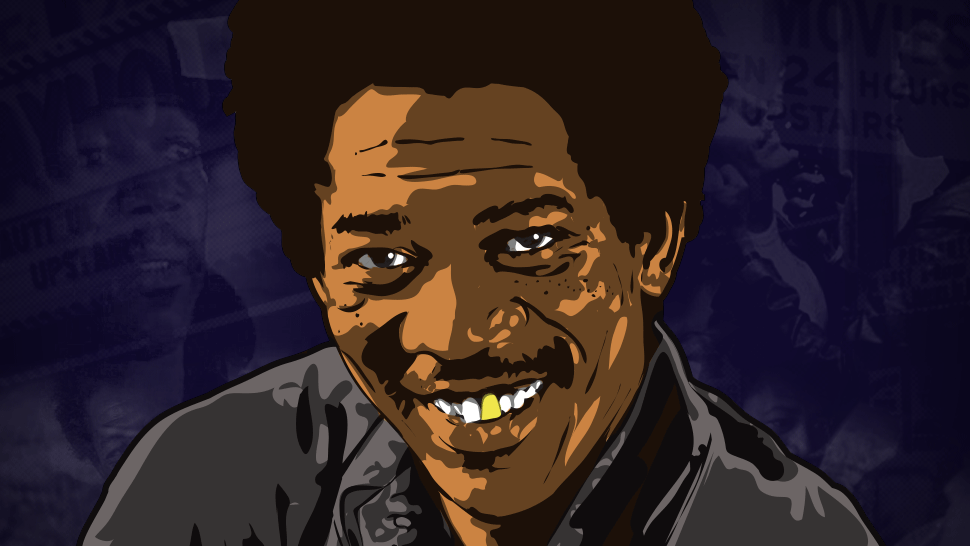New York Minute
Over at New York Magazine, Christopher Bonanos has a nice feature on the Strand:
Why is there still a Strand Book Store?
In large part because of Fred Bass. He’s pretty much the human analogue for the store’s gray column. His father, Ben, founded the Strand around the corner in 1927, and he was born in 1928. Ask him about his childhood, and he recalls going on buying trips on the subway with his father, hauling back bundles of books tied with rope that cut into his hands. (“Along the line, we got some handles.”) Ask him about the 1970s, and he’ll tell you about hiding cash in the store because it was too dangerous to go to the bank after dark. He’s 86, and he still makes buying trips, though mostly not by subway. “Part of my job is going out to look at estates — it’s a treasure hunt.” New York, to him, “is an incredible source — a highly educated group of people in a concentrated area, with universities and Wall Street wealth. The libraries are here.” Printed and bound ore, ready to be mined.
Four days a week, he’s on the main floor, working the book-buying desk in back. Stand there, and you’ll see the full gamut of New York readers. Critics and junior editors, selling recent releases. Academics. Weirdos. “Book scouts,” who pan for first-edition gold at yard sales and on Goodwill shelves. They walk in with heavy shopping bags and leave with a few $20s. Usually fewer than they’d hoped: The Strand rejects a lot, because unsalable books are deadweight. Whatever arrives has to go out quickly. “Our stock isn’t stale,” Bass says. “You come in, and there’ll be new stuff continually.” Slow sellers are culled, then marked down, then moved to the bargain racks outside, then finally sold in bulk for stage sets and the like.
[Photo Credit: Sebastian Bergmann]
BGS: Morgan Freeman Takes Off
Here’s another gem by Ross Wetzsteon. Originally published in the March 14, 1988, issue of New York magazine. Reprinted here with permission of the author’s widow, Laura Ross. Illustration by Sam Woolley.
Flying. He’d wanted to fly since he was 16. Sitting at his desk in high school in Greenwood, Mississippi, he fantasized that it was a P-51 Mustang, F-86 Sabre jet. He didn’t want to be a pilot, he wanted to be a flier. A pilot just drives—the flyer flies.
And now, five years later, Morgan Freeman is sitting in the cockpit of a jet fighter at last, the Plexiglass bubble secure, the nose falling away in front, the wings swept back, the joystick between his legs. Taxi to the head of the runway, get his clearance from the control tower, let loose the engine, sore into the sky!
Okay, it’s just a T-33 jet trainer parked beside a hanger and he’s only an airman-second-class radar mechanic who’s gotten permission to sit in the cockpit for a few minutes, but this is what he’s dreamed of since he enlisted in the Air Force. Hand on the throttle, eyes scanning the sky, he lets his mind fall into a rapturous reverie—chasing the clouds, dipping his wings from side to side, nosing into a steep dive and pulling out in a swooping arc.
But something’s wrong. After a couple of minutes, he realizes he can’t find the thrill he anticipated. It isn’t there. Instead of fantasizing, he starts thinking. Maybe this isn’t what he wants after all. Maybe he only wanted it because of the movies he’d seen. For one thing, anything he shoots will stay shot. Ten minutes pass. Fifteen. The dream is fading. No, this isn’t what he wants it all. After 20 minutes, he unstraps himself, pushes back the bubble, gets out of the cockpit, leaps to the ground, and walks away—not just from the plane but from the whole idea, from war, military life, jet fighters, all of it. He’s made a decision. If it’s all about movies, he’ll become an actor instead.
Thirty years later, in her New Yorker review of Street Smart, Pauline Kael asks, “Is Morgan Freeman the greatest American actor?” and it’s clear from her rave that it’s a rhetorical question. At Christmas time, he wins awards from the National Society of Film Critics and the New York and Los Angeles film critics as Best Supporting Actor for his performance as a pimp in Street Smart. In February, he’s nominated for an Oscar—against all odds, since only an electric performance could survive such a forgettable film. A street-smart pimp? The same Morgan Freeman who just finished a nearly yearlong run as an elderly, unlettered southern chauffeur in the Off-Broadway hit Driving Miss Daisy (a performance that won him his third Obie in eight years)? The same Morgan Freeman who’s a surefire Tony nominee for his performance as a charismatic Pentecostal preacher in The Gospel at Colonus, the long-awaited Lee Breuer-Bob Telson musical that had cheering, ecstatic audiences standing on their seats at the Brooklyn Academy of Music Next Wave Festival in 1983, then in Houston, Washington, Philadelphia, Paris, Atlanta, Barcelona, and opens on Broadway March 24?
And this is only one year. Morgan Freeman has played a wise old wino in The Mighty Gents on Broadway, an idealistic upper-middle-class architect on the soap Another World, a death-row prisoner in the film Brubaker. He’s danced with Michael Kidd at the 1964 World’s Fair, sung with Pearl Bailey in the all-black Hello, Dolly! He could be seen romping on The Electric Company, then as a stately Coriolanus at the Delacorte.
“When professionals talk range,” says a director, “the names you hear most often are Robert De Niro, Meryl Streep, and Morgan Freeman. It’s that indefinable quality only the greatest actors have to completely submerge themselves in radically different roles, to make you think in each one of them, ‘He was born to play that.’ A lot of actors have that authority in one or two or even three roles, but Morgan has it in everything he does.” It’s the kind of talent that often wins accolades within the profession long before it wins public recognition, and only this year has the world finally realized what Freeman has known for 30 years—that he made the right decision when he walked away from that cockpit.
Oscars, Obies, Tonys—Morgan Freeman is grateful for the recognition, but it also makes him uneasy. “It’s like some sorta Miss America contest,” he says in a half-exasperated, half-baffled tone. “‘Most this,’ ‘Best that’—all this schmagoo about winners.” He’s rubbing the clown white out of his hair with a towel after one of this final performances in Driving Miss Daisy. “If Jack Nicholson, Nick Nolte, and Bill Hurt are all up for the same award—with absolutely different characterizations—you’re going to tell me one of them is the best?”
At the Obie ceremonies last May, Freeman told a story. “Years ago, I was nominated for a Tony award for The Mighty Gents. Oh, ah, gee whiz—I was so executed! So I got my tuxedo and I went to the ceremony, and of course I didn’t win. Now, to be big about it, you know, you say ”kay.’ But I was crushed. I didn’t like feeling crushed, so I would prefer not to have been involved in it at all. If you’re going to give me an award, fine—just give it to me. But don’tnominate me for it. Because what they’re telling you is ‘You’ve been nominated, but you didn’t win.’ Terrific. Who wants to hear that?”

But wouldn’t an Oscar make a big difference in his career?
Freeman runs a comb through his hair, pats the left side of his head, then the right—he has facial bones that even Katharine Hepburn would envy, but not a trace of narcissism. “In a way, I’m kind of contradicting what I said, because sure I’m interested in getting the nomination, but frankly I don’t care if I win or not.” For one thing, getting the nomination will help him land the film of Miss Daisy. “I would commit crimes for that. But otherwise, I don’t want to get involved. It’s just that the whole system is carrying me along,” he says, spreading his hands, palms upraised, in a gesture of helplessness. “If your luck holds, it might lead to more work. But conversely, if it doesn’t, you might not even be in the business. Believe me, I know something about that.”
He’s bundled up now, heading out for dinner. He eats only one meal a day since he turned 50 (last June) and “my metabolism suddenly came to a screeching halt.” If awards don’t make much sense to him, bring up “range” and he immediately says, “That’s what I’m here for. I never quite made it as a ‘matinee idol’ or ‘leading man'”—the irony in his voice is more self-deprecating than sarcastic—”but I’ve always wanted to play the most interesting roles, and they’re not necessarily the leading roles. I prefer character roles. I want to get as far away from myself as possible. That’s the whole point of acting for me.”
Walking along 42nd Street, Morgan Freeman talks about the performances he most admires—not the Orson Welles of Citizen Kane but the Orson Welles of Touch of Evil; not the Laurence Olivier of Hamlet but the Laurence Olivier of Khartoum. He stops on the sidewalk, raises his right hand to his forehead in a snappy salute. “Now, that’s the level of performance you strive for.”
Like Freeman’s performance in Street Smart. Vicious yet charming, scary yet seductive, menacing yet amiable, the kind of guy who can hold a gun to your throat, then slowly smile, pat you on the cheek, and say, “Come on. I’ll buy you a cuppa coffee.” Freeman’s Fast Black has all the oxymorons you’d expect in a routinely first-rate portrayal of a pimp. But he takes them to a level deeper, playing a man so tautly in control he could snap into psychosis at any second, a man, most of all, who knows that a large part of being a successful pimp is being a gifted actor.
In one of the most chilling scenes in movie history, he grabs the prostitute played by Kathy Baker, slams her against a wall, and lays a broken scissor blade on her cheek, half an inch from her eyes. “I’m gonna take one eye. Just one,” he tells her. “You have to tell me which one—left or right?” Back and forth flash the scissors. Left? Right? Left? Right? Choose. And when he finally terrorized her into choosing, he slowly withdraws the scissors, turns them upside down, and peers through the handles as if they were eyeglasses, with a sly, get-my-point grin. Laurence Olivier himself could raise his right hand to his forehead in a snappy salute.
“What is a pimp?” Freeman asks, gesturing randomly at the passersby on 42nd Street. “Can you walk along here and pick one out? The way they usually play ’em in movies, you can. That’s just a caricature. No one I’ve ever seen in movies has done a person I know.”
He’s a regular at the restaurant; all the waiters greet him with first-name smiles. The owner rushes over, puts his arm around Freeman’s shoulder, guides him to the best table. There’s friendship in the greetings, not effusiveness, yet there’s a slightly wary reserve in his response. He speaks warmly with a hint of a drawl in his voice, but at the same time his eyes are sharply observant, some part of him remains distant, withdrawn, private. It’s as if he enjoys being known, liked, respected, but senses it could all change in a second—and if it does, he’ll be ready.
How does he “research” a part like Fast Black? He said something about people he’s known?
He’s silent for 20 seconds, 30, as if he hasn’t heard the question—it’s a trait his friends know well, the long, deadpan pause is always followed by that warm, slightly quizzical smile. “Nothing like that. All that happened was the costume designer called and said she wanted to go shopping with me. Fine. Whatever you say. I figure we’ll be going to 42nd Street, see. But then she says, ‘I want to take you to Saks Fifth Avenue,’ and as soon as she said that, my mind was galvanized! So we went shopping at Saks. The Giorgio Armani stuff was too sedate, but we were sure at the right store! ‘Cause being a pimp, it’s all about looking’ good.
“I’m not much for talking about acting,” he continues. “I’ve been called an intuitive actor, and I guess that’s right. I go with what I feel. It doesn’t do me any good to intellectualize it. Take Fast Black. He’s a real frightening guy: he’s made it into an art form—intimidating people, then slacking off—but talking about it that way didn’t help me. It was just getting into his clothes—that’s when I started putting the character in place.
“Sure technique has something to do with it, knowing when to underplay, when to overplay. When you first see Fast Black, for instance, he’s just a guy in a car having a conversation. Don’t get all animated, don’t ‘act.’ Then that scene on the basketball court, that the time to go over the top.” He looked at home driving the lane. Did he ever play basketball? Freeman draws back, puts on an “I can’t believe what I just heard” expression, raises both hands in a gesture of mock astonishment, and says in a playfully stern void, “Now, what the hell kinda question’s that to ask a man who’s tall and black?”
What about the scissors scene, though—the scene that could win him an Oscar? It seemed very thought out. “But the whole scene is Kathy’s,” Freeman says. “I’m getting all this noise becauseshe made that scene.” The reason for his modesty, of course, is that he’s judging the scene only as a matter of onscreen technique. What he can’t judge is the off-screen character that made it possible.
“Don’t underestimate trust,” says Street Smart‘s director, Jerry Schatzberg. “Actors can go out of control—I’ve seen it happen, especially in a role like that. One of the actors we auditioned got so deeply into the part that he accidentally sliced off part of his finger. So when we were finally shooting the scene with Morgan, it was frightening just to be there.”
“The people who were watching us were so frightened, they were standing flat against the walls,” says Kathy Baker. “But I trusted Morgan so much, I could give myself over to it completely. Kathy Baker wasn’t afraid, so I was free to let the character be totally scared out of her mind. Another thing about Morgan: Originally, we were shooting that scene on his face, but after a couple of takes he said, ‘No, no, this isn’t my scene, this is Kathy’s scene,’ and he reached out and put his hand over my face—‘This is where it’s happening’—and that’s the way it is in the film. How many actors would do that?”
“Well, sure,” Freeman says with a dismissive wave of the hand. “I work best when I feel I can have ideas and express ’em. Sometimes I get in trouble when I open my big mouth, but it can be a very creative part of the process when people are receptive. It was like . . . like . . . dancing’.”
He danced in Miss Daisy, too, the story of the initial unease and growing affection between an elderly Jewish widow and her black chauffeur. “Dana Ivey and me, we’re both from the South. We know things,” Morgan Freeman says wryly. “That dance they do down there, that dance between blacks and whites, that southern charm.” Gentleness, faith, patience—they come as naturally to the chauffeur as raging cynicism, and finger-poppin’ swagger came to the pimp.
“I went to see a play at Playwrights Horizons,” Freeman says, “and I started reading the notices on the bulletin board. One of ’em was a synopsis of this play called Driving Miss Daisy that sounded real interesting. I ‘member thinking, ‘Damn, who do I gotta see to do a play ’round here?’ A couple of months later, I got a call. Would I be interested in doing a play at Playwright Horizons? Turns out it’s the same play. Damn right I’m interested! But when I get the script, I go, ‘This is great,’ ‘Gee whiz,’ and all that. ‘But this play calls for an older man.’ But they tell me, ‘We’re going for quality rather than age,’ and my head, it explodes four or five times its normal size.
“So then I want to know who’s playing Daisy,” he continues. “I don’t want to be onstage with an actress twenty years older than me; that won’t work at all. But when I hear it’s Dana Ivey—well, man, oh, man, I think, ‘This is gonna be two actors up there.'”
What was up there, in fact, was an acting feast. And a rapport that, like most of Freeman’s working relationships, extends beyond the stage. “Of course, everyone knows he’s one of our very greatest talents,” says Ivey, as if in a hurry to get the obvious out of the way, “but what only his friends know is what a beautiful, sweet giving person he is. Morgan’s a mahatma, a Great Soul, with a capital G and a capital S.”
Great Soul—it could be a capsule review of his performance in The Gospel at Colonus. “When I stepped onstage at my first run-through in Minneapolis back in ’83,” says Freeman, “and I spoke the first words” (his voice drops an octave: it could resonate to the rafters, a voice rivaled only by James Earl Jones’s), “‘Think no longer that your are in command here,’ when I said that first line and heard the members of the choir going, ‘Amen!’ behind me, I said to myself, ‘Oh, shit, Morgan, this is gonna knock ’em dead!’ And then that joyous music broke out, and all that incredible singing’, and all kinds of Jesus noises goin’ on, it just wrung me. . . . ” He’s so moved by the memory he can’t finish the sentence. “I’ve been in a lotta shows in my life,” he says finally, “and I’ve thought a lot of ’em were pretty good, but this is a masterpiece.”
Gospel at Colonus, the tale of Oedipus’s final days as a Pentecostal church service, links Hellenic myth and black gospel music, Sophoclean tragedy and call-and-response exaltation, Greek catharsis and biblical ecstasy. As the minister who orchestrates the passions of the churchgoers with the intonations, cadences, and modulations of the great gospel preachers—now plunging into despair, now seized by rapture—Morgan Freeman has a serene dignity that defines, once and for all, the concept of stage presence. And in a stunning coup de theatre, he takes center stage after the show-stopping “Lift Him Up,” sung by Carolyn Johnson-White of Brooklyn’s Institutional Radio Choir with beatific frenzy—what actor would dare follow such a performance?—and not only holds the audience with his concluding sermon but lifts them yet another plateau higher. Hallelujah!
“I’d been outta work for two years,” says Freeman, “when I get this call from Lee Breuer. I’d never heard of Lee Breuer, but we sit in my kitchen for a couple of hours while he explains his ideas. He wants to do a Greek tragedy, but not with the classical European approach. We have our own classics here in America—gospel music, for instance.” Freeman is in the dialect mode he often affects with a slightly ironic edge, portraying himself as the country cousin in the city.
“So Lee is sittin’ there, rattlin’ away,” he goes on, “and he is one highly ‘lectual dude. I don’t know what hell he’s talking’ ’bout. Who is this guy? But he’s piqued my interest, ‘specially that bit ’bout European classicism. Then I find out Clarence Fountain and the Five Blind Boys of Alabama are going to play Oedipus—are you kiddin’! And these fabulous old gospel singers, they’re going to be in it, too. ‘Wow, golly, gee whiz.’ I’m goin’, ‘What’s this guy doin’? Then he tells me, ‘I need a star to glue it all together,’ and I say, ‘I’m no star,’ and he says, ‘Well, I’m going to make you a star.'”
Morgan Freeman pauses, does a bug-eyed double take. “Me? A star? I got two words for you: ‘Hah. Hah.'”
But a few weeks later, he heard Bob Telson’s music and “suddenly felt goose bumps, chills, little bits a hair standing’ up all over my body.” He pauses, drops the dialect, says solemnly, “Then, that first run-through in Minneapolis. I wanted to call everyone, right then. I wanted to get on the phone and tell everyone I know, ‘Man, this is what theater is all about.'”
Once more, Freeman is modest about his own contribution. His preaching style, for instance: “I was raised as a Methodist, but I event to Pentecostal services sometimes, and there’s no way I can do that as well as they can. Drivin’ the congregation into a frenzy? Quotin’ the Bible?”
This is not false modesty, though, because Morgan Freeman will make claims when he thinks it’s his due. “Lee’s fabulous conceptually,” he says, “but he’s also very receptive to creative input. He took a lot of my suggestions.” One major example: “I told him he shouldn’t allow too many places where the audience applauds every time they want to, we’re talking’ ’bout swollen hands—and by intermission.”
“I consider Morgan my assistant director,” says Breuer. “If I have the ability to conceptualize, he has the ability to know what the moment demands. He added professionalism without adding slickness. He provided a plumb line to direct and vital contact with the audience, which is another way of saying he helped me get rid of some of my artsy-fartsy instincts.”
Breuer pauses for a moment. “We had a little conversation early on. It was the best piece of directing I ever gave him. ‘You’re no longer a character actor,’ I told him. ‘You’ve got it all to become a star. And to do this right, you have to think of yourself as a star. You have to feel that no one else onstage is worth looking at.’ I think he thought of himself as a star for the first time. He should—everybody else does.”
Freeman is still uneasy about the notion—he’s still a “play’s the thing” actor. “People don’t usually go to the theater expecting spiritual uplift or redemption,” Freeman says, shifting the focus from himself to Gospel, “but this show gives them something they’ve been missing that they didn’t even know they’ve been missing, the experience of soul.”
It’s long past midnight now, but it’s early evening for Morgan Freeman. He likes to stay up until four, five in the morning—he cherishes that pre-dawn privacy. When he reaches his large Upper West Side apartment, his second wife, costume designer Myrna Colley-Lee, is already asleep, as is the grandchild who’s living with them. (How old is she? “‘Bout 30,” he said, “all wrapped in a 6-year old package.”) A couple of bikes lean against the wall in the hallway, a couple of dozen hats hang from a rack, the walls are covered with pictures of sailboats—not a sound in the apartment except his cat Ebony, purring in his lap.
Freeman boots up his computer (“He’s a Gemini, part show-off and part loner,” his wife says). Now it’s time for the solitude of writing. He has ideas for stories, novels, movies, but mostly he writes commentaries on current events, a series of dialect dialogues featuring Sol and C.C.—Solomon and Concerned Citizen. (“Ever’body gon’ need he’p from ever’body if we specks to survive on dis planet,” Sol says in one. “Quicker we all see dat, de better off we’s all gon’ be.”)
Tonight, though, he’s working on a piece about a recent trip down South, when he visited an elderly black man who knew his great-grandmother and grandmother at the beginning of this century. “These people, these ancients, were mine,” he types. “My people. They had meaning and substance. They endured. They continue to endure.” Morgan Freeman is proud to call himself a self-made man, but not too proud to understand that even a self-made man has roots.
Morgan Freeman had an unsettled childhood, born in Memphis in 1937, living in Charleston, Mississippi, with his grandmother until she died when he was six, off to Chicago with his mother, back to Greenwood, Mississippi, a brief period in Nashville—all the while the man he coldly refers to as his “biological father” . . . Morgan Freeman enters another of his minute-long pauses. “You really want to know all this? To tell the truth, I don’t like to talk about it.” It doesn’t seem to be a question of race so much as a difficult family situation. Freeman will probably write about it sometime, between him and his PC.
His first exposure to acting was at the age of eight—Fast Black got his start as Little Boy Blue—but he didn’t get hooked until the seventh grade, when he was literally flung onstage. “It all started with a girl named Barbara,” he says, “the class princess, as nice as you please. I wanted to get her attention, so one day I pulled a chair out from under her. Sure enough, I got attention. The teacher grabbed me by the nape of the neck, lifted me onto my toes, and marched me down the hall. I thought for sure I was gonna be ‘xpelled.
“But he opens the door and flings me into this room, and there’s this English teacher and he asks me, ‘You ever done any actin’?’ Well, under the circumstances, I’m quick to say yes. Turns out there’s these dramatic tournaments—every school does a play—and the winner goes to the state finals. Well, we do this play ’bout a family with a wounded son just home from the war—I play his kid brother. We win the district championship, we win the state championship, and dadgummit, I’m chosen as best actor. All ’cause I pull this chair out from under Barbara.”
His head-in-the-clouds phase interrupted the budding actor’s career, but ever since he walked away from that cockpit, he’s wanted his feet on the boards. The ex-airman went to Los Angeles, looked up Paramount in the phone book, and took a bus to the studio to ask for a job, only to discover, among the first questions on the application, something about familiarity with office machinery. It wasn’t his last rude awakening—he’d had one almost every year since.
“It’s all been back and forth between trying to get a part and having to get a j-o-b.” He worked as a clerk at L.A. City College, then enrolled in its theater department—”I was walking’ in tall cotton!” But when he left school and drove to New York, the only work he could find was a telegrapher. Back to the West Coast, this time to San Francisco, living on day-old doughnuts, ending up in a musical-repertory company, losing that job when he refused to play an Indian inLittle Mary Sunshine who waves an American flag—”You gonna tell me an Indian is gonna tothat?” Back to New York, knocking around, an extra in The Pawnbroker, another j-o-b, this time in the garment district. Maybe he’d have better luck as a dancer. And he did at first, successfully auditioning for the Aquacade at the 1965 World’s Fair—”the World Something or Other Extravaganza.” Where could he go but up? A $49-a-week counterman at Nedick’s in Penn Station, that’s where.
But he hung in, entered his Hello, Dolly!-Electric Company-Mights Gents phase, and, in 1978, won the Clarence Derwent Award for promising newcomers. “‘Newcomer,'” he says with a resigned laugh, “after twenty years.” And then that Tony nomination—”‘Ho, boy, welcome to success at last. I’m going to kick tail all over the place. Now the phone is never gonna stop ringing’!’ But the door slammed shut, just like that. All this attention and then I didn’t work for two full years. I’d taken success for granted and then—kablooey. I’ll never make that mistake again.”
Morgan Freeman gives himself some of the blame. “I kinda let my mouth run off. I felt compelled to tell people what was wrong with their ideas. I guess word got around that I was a troublemaker. One movie I was up for, “Any other black people in this movie?’ I asked them. They all looked at one another. ‘We don’t believe so,’ they said, ‘We never thought of it in racial terms.’ Well, that was a lie right there—I mean, they were casting me as an orderly—and the whole thing turned to shit on the spot.
“Another movie, I was getting a little tense about this, ya know, and when they asked me what I thought of the script, I said, ‘Yeah, well, there are twelve characters in this movie, nine white scientists and three blacks—a cook, a mechanic, and something else, I forget. What do youthink I think?’ Needless to say, I didn’t get the part.”
Troublemaker, maybe. Militant, no. “I’m so tired of hearing about the under class, about slavery. Racism isn’t new. It’s not something this country invented. ‘Aw, they won’t let us eat in this restaurant,’ but they’re no lining us up against the wall and mowing us down, either. What they’re doing in South Africa—now that’s racism. Give me a choice, and I’ll take this racism right here.”
Doesn’t this attitude get him in trouble with some of his black friends? “Naw, they’re all tired of hearing it, too. We just want to get on with the business of doing something about it. And remember our past, too. There’s a whole other kind of wonderful history of black people in this country, every kind of hero you can imagine, and the fact that nobody knows anything about it is the greatest pity of all.”
That’s one of the things he’s going to write about someday. And he’s considering a movie script about black cowboys. “I know who this country belongs to,” he says, with more determination than anger. “You can’t disenfranchise me. You’ve just gotta know how to fight.”
He’ll fight when he has to—he’ll fight to do the movie of Miss Daisy, to play Petruchio in The Taming of the Shrew—but he still has that serene vision of soaring, though in a boat, not in a plane.
“When I see sailboats,” Freeman says, “it’s like seeing a bird—those white wings.” He has his own sloop, a 30-footer named Lenora II, after his grandmother. He has sailed from the Keys to Nova Scotia, and now he has his eye on a Gale Force 9, a blue-water cruiser—$150,000 “with all the hoohaw on it”—and if Gospel‘s a smash. . . .
“You ever been on the ocean?” he asks in a kind of reverie. “The birds out there, big fat gulls called shearwaters, they have these pressure-sensitive wing tips, they fly right on the water, they touch the waves—it’s the ultimate turn-on.” More than acting? “Acting’s very fulfilling, but sailing satisfies another need, a need of the soul. People need peace in their lives—grace—and that’s where it is for me.” His voice is rapturous now. “Once I hoist sail and the wind blows, I take flight. That’s how I fly now—on my own wings.”
Ross Wetzsteon was a journalist, critic, and editor in New York City for 35 years. From 1966 until his death in 1998, he worked at the The Village Voice as a contributor and editor, and for several years as its editor-in-chief. During his tenure at the Voice, Wetzsteon oversaw coverage of everything from politics to sports, but his abiding interest was the theater. For 28 years, he was the chairman of the Village Voice Obie Committee, responsible for bestowing awards for excellence on Off- and Off-Off Broadway artists and writers. Wetzsteon also contributed articles to New York Magazine, Men’s Journal, Playboy, The New York Times, Inside Sports,Conde Nast Traveler, Mademoiselle, and many other publications. He edited several anthologies, including The Obie Winners in 1980 and The Best of Off Broadway in 1984. He also wrote the preface to a collection of playwright Sam Shepard’s works, Fool for Love and Other Plays, and he was the author of Republic of Dreams: Greenwich Village: The American Bohemia, 1910-1960. He died in 1998.
BGS: Where Have You Gone, Mickey Mantle?
Let’s stick with baseball now that spring training has begun. Here’s a wonderful Mickey Mantle profile by Diane K. Shah. The story originally appeared in New York Magazine (April 21, 1980) and is reprinted here with the author’s permission.
“Where Have You Gone, Mickey Mantle?”
By Diane K. Shah
I’m in a taxi, trying to get to Yankee Stadium. I’m late and I’ve got my uniform on. But when I get there the guard won’t let me in. He doesn’t recognize me. So I find this hole in the fence and I’m trying to crawl through it, you know? But I can only get my head in. I can see Billy and Whitey and Yogi and Casey. And I can hear the announcer: “Now batting … number 7 … Mickey Mantle.” But I can’t get through the hole. That’s when I wake up. My palms are all sweaty.
July 1979: Mickey Mantle, almost 48, is sitting in Billy Martin’s office on Old Timer’s Day at Yankee Stadium. He is wearing his number 7 uniform and looks much the same as always. The broad shoulders, the thick neck, the sun-faded blue eyes. But the stomach is soft with middle age, and the face has aged too quickly, from either all those summers in the sun or all the nights on the town, to belong beneath the bill of a baseball cap.
“You ever have dreams like that, Billy?” Mantle asks.
Martin, sitting behind his manager’s desk poring over a record book, looks up at Mantle through his reading glasses. “All I ever dream is that I just got fired,” he says and breaks up laughing.
But Mantle wants to be serious. “You know that song by Roy Clark, ‘Yesterday When I Was Young’? Well, that’s what they’re going to play at my funeral. Every time I hear it I could just cry.”
March 20, 1980: Anheuser Busch today unveils a new advertising campaign for its Natural Light beer, involving “the greatest defection since Solzhenitsyn” and “the most radical breakthrough in beer marketing in years.” The campaign features five famous ex-athletes, including three—Mickey Mantle, “Smokin'” Joe Frazier, and Nick Buoniconti—who previously appeared in commercials for Miller Lite. Mantle has taken a break from his Yankee spring training batting instructor job to attend the press conference.
Speaking for the three defectors, Buoniconti says, “Even though the new commercials are lighthearted spoofs, Mickey, Joe, and I are serious about this. This wasn’t just a case of an advertiser offering us a bunch of money. We each did a comparison taste test and preferred the taste of naturally brewed Natural Light. We signed sworn affidavits to that effect.”
Perhaps it is the fate of all great athletes to leave their arenas too soon and to reflect forever more on what was—and what might have been. Mantle was 36 when his career ran out on him. It is that age that still gnaws at Mantle today. “All I’d ever known was baseball,” he says. “And there I was, 36, not even in the prime of my life, and I was through. That’s what keeps hurting.”
For nearly two decades Mickey Charles Mantle was one of the dominant baseball players of his time. There was his power, from both sides of the plate, and those frightening swings that could rattle a stadium. Ten times he smashed home runs right- and left-handed in the same game, a record that stands today. His most famous home run was the tape-measure shot out of Washington’s old Griffith Stadium in 1953 that wound up—was it possible?—565 feet from home. He was a legendary outfielder, his speed—3.2 seconds from home to first—made him one of baseball’s best drag bunters, and his arm was strong and sure.
But always there was the tape.
In his first season, during the 1951 World Series, he tore the cartilage in his right knee when he caught his spikes on a drainage cap in right-center trying not to crash into Joe DiMaggio. After that, despite four operations and the yards of bandage he methodically wrapped around it, the weakened joint could never keep up with the powerful body. Going easy on the right leg, he injured the left. His ailments, one after another, grabbed as much space in the papers as his triumphs.
It was this dramatic interplay of brute strength and fragility, excessive in Mantle’s case, that fueled the Mantle legend and made him a hero to a generation. Even his teammates idolized him—six named sons after him. Like many of the small town boys who came to play baseball in the fifties, Mantle lived only for the game. Other than golf and hunting, he had no outside interests. Money seemed secondary. Once, in 1958, he tried to hold out on his contract. But shortly after spring training started, he spotted a newspaper story that said if he didn’t report to camp right away he would be traded. “I was there the next day,” says Mantle. “Being traded from the Yankees would have killed me.”
In the end, though, his legend proved larger than his legacy. He played at his peak only a few of those eighteen seasons, the ones when his legs held up, and the giant records eluded him. He did not get 3,000 hits (he had 2,415) or 2,000 RBI’s (1,509), and his main goal, a .300 lifetime batting average, slipped away from him in his disappointing final four years, when his average plunged ten points to .298. Finally, in the spring of 1969, his legs would not come around. He called a news conference at the Yankees’ Fort Lauderdale training camp, announced he was finished, and headed unhappily home to Dallas.
But what exactly had become of the great Yankee slugger? How had this athletic superstar, who attained so much success at such a young age, made the transition into real life? Emotionally, he always knew it would be difficult. But financially . . . well, he had half a dozen money-making schemes all lined up. Long ago, he outlined his hope for the future: “I just want to get rich and play golf every day.”
The Longview Mall in Longview, Texas, has barely shaken awake at nine o’clock on a muggy Saturday morning. Everywhere there are signs: APPEARANCE—MICKEY MANTLE. Inside, in a small business office, half a dozen local reporters are sitting around a conference table studying the “Official Mickey Mantle Agenda.”
Mantle is delayed on the 140-mile drive from Dallas by a sudden downpour. When he finally appears in the doorway, 50 minutes late, he apologizes, smiles weakly, and slouches into a chair. He is wearing tan slacks, a pastel plaid shirt, and the look of a man who has been railroaded into coming to a party he didn’t want to attend. He hikes his left ankle onto his right knee and looks gloomily around the room. “Aren’t you supposed to ask me questions?” he says.
The questions are the same ones he’s heard a zillion times. What was his biggest thrill? Wouldn’t he like to manage? Doesn’t he wish he could be playing at today’s high salaries?
You can see Mantle is trying to do his best. He answers every question politely, and when he finishes, if no one jumps in with another one, he continues belaboring it.
“We were going to give you some pictures to look at ahead or time to help you, but …”
“Pictures,” says Mantle, “0f what?” Mantle, it seems, has no idea what his appearance at the mall entails, only that it will take four hours and pay him $2,500. As he’s being escorted from the press conference, Mary LaTourneau, the mall’s marketing director, tries to explain about the look-alike contest. There will be two: one for children, one for middle-aged men.
Suddenly, Mande stops cold in the hallway. “You mean.” he says incredulously, “I’m supposed to pick out some guy who looks like me?”
“The thing is,” Mary says apotogetically, “only one man entered.”
Before a small crowd of several dozen curious shoppers. Mantle lumbers onto a makeshift stage and comes face to face with his look-alike. The man, a 43-year-old dime store manager from nearby Marshall, Texas, is wearing pastel green slacks and a face wreathed in smiles. He’s overweight, his ears stick out, and if he resembles anyone, it’s a middle-aged Howdy Doody.
“Congratulations,” mumbles Mickey, at a loss.
“I used to play ball in high school with your twin brothers,” the pleased man gushes.
Mantle hands him a letter from the mall telling him where to collect his $100 reward, then he looks around helplessly. Below him are the upturned faces of a dozen youngsters who are participating in the other look-alike contest. “Pick out the one who most looks like you did at that age,” someone prompts him.
Mantle turns and studies them. He hesitates before a blond, freckle-faced boy of eleven. “Best I can remember,” he drawls. “Stanley here looks like me.”
Stanley Woods, shy and as embarrassed as Mantle is, collects the ballplayer’s autograph and then scampers off to join his aunt, a large, fat woman with a ponytail and a white T-shirt. “I used to be married to a pitcher for the White Sox,” she sings happily, “but he died.” Then, patting Stanley’s head, she says, “I just knew he would win. He looks exactly like Mickey did. I just know it.”
Judging look-alike contests at shopping malls is not what Mantle intended to do with his life. But that’s the way it’s worked out.
He still lives in Dallas, where he is a vice-president of Reserve Life Insurance Company. He shows up at company “victory” dinners, where agents who have sold a lot of policies get to rub his elbow over cocktails. In addition, he does a week-or-two-long “informal golfing excursion” each year with Allied Chemical. and in the spring George Steinbrenner pays him to throw out baseballs at Yankee farm club openers. He also makes appearances. These, his TV commercials, and his Reserve contract pay him more than the Yankees did—$150,000 to $200,000 a year.
He knows he should not complain. In fact, he is genuinely flattered that people even remember him. Last year, a New Jersey housewife paid Mantle an appearance fee to show up at her husband’s fortieth birthday party. When Mantle arrived, the man, once an avid fan, burst into tears. Mantle was moved by this, and when he got home he impulsively shipped the man the uniform the Yankees had given him when they retired his number.
Nevertheless, after all these years, Mantle still finds himself dreading public occasions. When Gerald Ford invited him to the White House for a state dinner honoring the president of France, Mantle’s response was to throw out the invitation. “Why do they want me there?” he kept complaining as the White House barraged him with phone calls. “I don’t know anything about politics.” As it turned out, Mantle was seated at the president’s table, his wife beside Vice President Rockefeller. Ford talked golf with Mantle; Rocky inquired endlessly about the Mantle boys. “They were so elated that they had such a good time,” says his attorney, Roy True, who had urged Mantle to attend, “that the next day they hopped a plane to Las Vegas as a sort of dessert.”
Now, driving to Oak Forest Country Club for lunch, Mande says little. He is being escorted by three cheerful young women from the shopping mall who are polite but out of their element. To them, Mantle is a celebrity whose name rings a distant bell.
Mary is reminded of an anecdote. “I heard a story about you,” she begins, “from a guy who parks cars at another country club in town!”
Mantle jerks his head around. “What was it?”
“Well, I don’t think I can tell.”
Mantle looks uneasy. “It can’t be that bad,” he says hopefully.
“Well … er, he said you went outside and … I can’t.”
By now the slugger is turning red. “Come on,” he says, “what’d I do?”
Taking a deep breath, Mary blurts, “You used the bushes for a toilet.”
That afternoon’s activity consists of two autographing sessions—one, for an hour, at Dillard’s department store, the other at J. C. Penney. The local radio men cover Mantle’s arrival at Penney like a papal visit. “He’s entering the housewares department … he’s climbing onto the platform….”
The lines stretch from housewares into bedspreads and sheets, past shower curtains and gift wrappings, along the cafeteria, beyond the credit desk—all the way to the rest rooms at the back of the store. Dan Whyte, a retired Marine who nearly had his head shot off in Vietnam, has been anxiously awaiting Mantle’s visit all week. A native of the Bronx, he has brought with him a yellowed scrapbook filled with pictures of the Yankees of yore. There are several of the early Mantle, who looks about fifteen years old in his baggy pinstriped uniform. “Mantle,” gushes Whyte, “is like the John Wayne of baseball. Still looks good, doesn’t he? Too bad about his knees. He would have made a good marine.”
At last, Whyte’s moment comes. He steps up to the platform and thrusts his scrapbook under Mantle’s nose. Mantle starts to sign “Mickey Mantle”—for his hand is too tired now to pen “Best Wishes”—but Whyte is trying to flip through the pages, to show him. Mantle stares blankly, smiles, and reaches for the next piece of paper.
“I guess he was kind of busy,” sighs Whyte.
At three o’clock, with the lines still stretching, Mantle is escorted from the platform, visibly tired now, his official engagement over. He walks out into the heat of the parking lot and climbs into his 1976 Cadillac Eldorado.
On the ride back to Dallas, he says, “I think about baseball all the time. I think about how I didn’t finish with a .300 batting average. I think about what it would have been like if I’d played in a different ball park. It was 480 to center, you know, and I lost a lot of home runs. And my legs. My right knee hurt almost every day. I really do believe I would be way up at the top of everything if I hadn’t been injured. When I was healthy, I really believe I was the best of anyone I ever saw play.
“But,” he adds dolefully, “you have to go by the records.”
Mantle switches on his C.B. to see if there are any Smokies ahead. Then he says, “My biggest regret is not being able to play at least five more years. The Yankees wanted me to. But it was embarrassing to me to screw up like I did. I couldn’t hit worth a shit.
“It was all I lived for, to play ball,” he says. “I used to like to play so much that I loved to take infield practice. I couldn’t walt to go to the ball park. I hated it when we got rained out.”
Then, fearing perhaps that he’s left the wrong impression, he adds, “Look, it’s not that I’m not happy now. I am. But to be 25 years old and rounding the bases, the hero of the Yankees…”
Times have changed, so has his life, but Mantle, it seems, has not. From age 3, when his father first put a bat in his hands, until age 36, he was consumed by baseball. The hope of being the greatest ballplayer still runs through his dreams. By day, he makes a living off the dream. By night, he tries to recapture it.
He drops me off and heads for home—the end of another road trip.
“Mickey and I were in New York on a business deal in the spring of 1969,” said Roy True. “We were sharing a suite at the St. Moritz. One morning I woke up and found him wrapped in a towel, standing in front of some French doors that opened onto a balcony. I said, ‘What are you doing?’
“‘Just looking out at the city.’ he said. ‘It’s some city.’
“‘Yes, it is,” I told him.
“‘And that son of a bitch used to be mine,’ said Mantle, ‘all mine.'”
Mantle’s transition into the appearance business came largely at the hands of Roy True. Mantle first approached the Dallas attorney ten years ago on a Florida land deal, but it quickly became apparent to True that Mantle was hardly going to galvanize Wall Street. “Mickey is not a businessman,” says True. “He hates meetings. He isn’t interested in the ongoing process.He just wants to know the results.”
Before True came along, the results had been abysmal. His first big “deal” came the very day he arrived at Yankee Stadium when a fast-talking stranger “grabbed me and said he could make a million dollars for me in five years. All I had to do was give him half of everything I made for ten years,” Mantle recalls. “A million dollars is a lot when you’re making $7,500. I signed right away.”
Legally, Mantle was not old enough to sign a contract, so he got out of it. But he never did learn to distrust strangers. Even at the end of his career he was boasting about an investment that would make him rich for life. He bought 12,500 shares of stock at $10 each. Years later he sold them at $4.
True figured Mantle had better start promoting himself. Mantle balked. “The problem was he felt he didn’t have anything to contribute,” says True. “So I talked strong and long to him. Once he found out that people were interested in what he had to say, he gained the confidence that he was something other than a ballplayer.”
True came up with the Mickey Mantle speaking format—twenty minutes of baseball yams followed by Q and A—and set the Mickey Mantle fee, now $3,000. He books Mickey only into cities that are easy to reach. Still, Mantle becomes anxious before an appearance, worrying that his sponsors will want him to have tea with Aunt Tillie or something, and that if he refuses, “people will think I’m an ass.” Thus, True devised the official Mickey Mantle itinerary—pay for it and stick to it.
On Monday, I arrive at Roy True’s law offices right on time for my interview with Mantle and am surprised to find the ballplayer already there. He is wearing tan slacks and a yellow knit shirt, nicely dressed as always. We go into the law library, and again he seems uncomfortable. He sits in his chair, clutching a batch or letters, fidgeting like a well-behaved child who has been made to say a few polite words to grown-ups. As Mantle talks, I begin to understand: He was, and remains, a modest man who worked hard at the game he loved, wanting to excel through sheer competitiveness, never quite comprehending the acclaim that came with it.
“Coming out of Commerce, Oklahoma, which is 2,000 people, and going to New York when you’re nineteen would be tough on anyone,” he says. “But after my first spring training they started writing that I was going to be the next Joe DiMaggio. In a way I was lucky, I had time to grow with my fame. It wasn’t until 1956 that I did what the papers said I should do, and by then I was used to the attention and it didn’t bother me.”
“Do you miss the limelight now?”
“No, I don’t think it ever meant much to me. People come up to me and they say, ‘You remember that home run you hit in Boston in 1954?’ And I don’t. And they begin to describe this particular home run, inch by inch. It was like they were talking about someone else. It’s hard for me to remember what it was like then, or how I felt. Even now I’m not very conscious of being Mickey Mantle.”
Mantle is still fidgeting—though he has finally put the letters down—alternately scratching his enormous biceps, stretching, and yawning.
Outside of baseball, the continuing obsessions of his life are his children and his golf. Of his four boys—Mickey Jr., 26; David, 24; Billy, 21; and Danny, 19—the two youngest still live at home. And though Mantle brightens when speaking of his kids, he is oddly elusive about what they do. One close friend confides, “Mickey thinks the boys would be more active participants in the traditional sense of working men if they hadn’t been brought up the way they were. He always let them know he would take care of everything. He feels it’s his fault they haven’t really shown the ambition to pick something out and go get it.”
Of golf Mantle talks a blue streak. Every day he is in Dallas, save Mondays, when his club is dosed, he plays eighteen holes at Preston Trails, “where they don’t allow women—even as waitresses,” he says with delight. “Before they started building houses out there, we used to play naked.”
“Golf,” continues Mantle, “is the only thing I can still do. I can’t play racquetball or tennis or even ride a bike. And I have this need to compete. What bothers me is that my knee is getting worse, and when I’m 55 I may not be able to play at all. Then I don’t know what I’ll do.” His eyes looks sad.
“Don’t you still hunt and fish?” I ask.
“Yeah.”
“What do you hunt?”
For the first time Mantle grins. ” Puss,”‘ he say.
But the old devilishness simply is not there, and after a moment that smile fades and a more subdued Mantle reflects, “The one thing I would have done different in my life was to take better care of myself while I was playing. I really burned the candle at both ends. And it caught up with me.”
Suddenly he stands up. “Let’s drive by the house,” he says. “You can meet Merlyn.” He is out the door in a flash. The interview is over. The jailer has released him.
The Mantles’ four bedroom beige house sprawls on an acre of emerald green lawn in an upper-clan section of North Dallas. Its two wings wrap around a sparkling turquoise swimming pool that looks like it hasn’t been used for some time.
Merlyn Mantle, a tiny platinum blonde with large blue eyes is in the den talking to Joe Warren, a regional sales manager for Reserve Life, who had dropped by with two box of baseballs for Mantle to autograph. Mutely, Mickey carries the boxes to an easy chair. Balancing the boxes on his knees, he begins scrawling his name.
As Warren is speaking, Merlyn turns and says softly to her husband. “Do you want your glasses?”
“No,” mumbles Mantle in embarrassment, and keeps writing.
Later I am led through a spotless white kitchen to the back of the house, where, stuck on like an appendage, the trophy room is. It is an awesome treasure trove or memorabilia, every square inch of wall crammed with the mementos of Mantle’s extraordinary achichievments. Encased behind glass are an enormous sterling tape measure honoring his longest blast, a solid silver bat denoting his American League batting titles, the big, jeweled Hickock Belt for athlete of the year. Trophies that do not fit into the credenza spill out into the far comers of the room. One wall crawls with magazine covers of Mantle. Another holds a framed swatch of the number-7 pinstripe.
Throughout Merlyn’s tour, Mantle stands impassively in the doorway. He rarely comes into the room anymore, he says, and seems uninterested in it.
“When Mickey first retired,” Merlyn says, “I thought it was really great—he’d be home all the time. But he isn’t.”
“The last three months I haven’t been home hardly at all,” Mantle concedes. “That promotion I did for Cameron Wholesalers? I went to twenty cities all over Texas. They had this deal called Mickey Mantle Grand Slam Specials. You buy 50 doors and get one free”—he laughs—”or something like that.”
“Do you enjoy these appearances?” I ask.
“No,” says Mantle quietly. “It’s just a monetary thing. It doesn’t do anything for my ego. If somebody gave me $2 million I wouldn’t do another one.” Then, not wanting to sound ungrateful, he adds. “Really, I don’t mind it, though. It makes me feel good that people want me to come.”
It is only quarter to twelve, but itchy as ever, Mantle suggests we go out and eat lunch.
At the restaurant, the Mantles pick at their food and apologize that it is not very good. Mickey notes that he weighs 205 pounds—not much over his playing weight. “But it’s shifting,” he says with a small, sad smile.
Then abruptly he puts down his fork. “I just hate getting old,” he blurts.
Merlyn Mantle nods and looks away.
It is, sadly, the wrong note to end on. But perhaps that’s how it must be. “Mickey comes to me from time to time and says this guy or that guy wants to write a book about him,” says Roy True.”And I tell Mickey it’s not time. And Mickey says, ‘Well, what are we waiting for?’
“And I tell him,” says Roy True, “I’m waiting until we can have a happy ending.”
Night-Shifting for the Hip Fleet
“Night-Shifting for the Hip Fleet,” by Mark Jacobson. New York Magazine, 1975:
A driver I know named David is worried. David and I used to moan cab stories to each other when I was on the night line. Now he keeps asking me when I’m coming to work. After four years of driving a cab, he can’t believe interviewing people is work. David is only a dissertation away from a Ph.D. in philosophy, which makes him intelligent enough to figure out that job openings for philosophers are zilch this year. The only position his prodigious education has been able to land him was a $25-a-night, one-night-a-week gig teaching ethics to rookie cops. David worked his way through college driving a cab. It was a good job for that, easy to arrange around things that were important. Now he has quit school in disgust and he arranges the rest of his life around cab-driving. He has been offered a job in a warehouse for which he’d make $225 a week and never have to pick up another person carrying a crowbar, but he’s not going to take it. At least when you’re zooming around the city, there’s an illusion of mobility. The turnover at the garage (Dover has over 500 employees for the 105 taxis; it hires between five and ten new people a week) makes it easy to convince yourself this is only temporary. Working in a factory is like surrender, like defeat, like death; drudging nine to five doesn’t fit in with a self-conception molded on marches to Washington. Now David’s been at Dover for the past two years and he’s beginning to think cab freedom is just another myth. “I’ll tell you when I started to get scared,” David says. “I’m driving down Flatbush and I see a lady hailing, so I did what I normally do, cut across three lanes of traffic and slam on the brakes right in front of her. I wait for her to get in, and she looks at me like I’m crazy. It was only then I realized I was driving my own car, not the cab.”
David has the Big Fear. It doesn’t take a cabdriver too long to realize that once you leave the joy of shape-up and start uptown on Hudson Street, you’re fair game. You’re at the mercy of the Fear Variables, which are (not necessarily in order): the traffic, which will be in your way; the other cabdrivers, who want to take your business; the police, who want to give you tickets; the people in your cab, lunatics who will peck you with nudges and dent you with knives; and your car, which is capable of killing you at any time. Throw in your bosses and the back inspectors and you begin to realize that a good night is not when you make a living wage. That’s a great night. A good night is when you survive to tell your stories at tomorrow’s shape-up. But all the Fear Variables are garbage compared with the Big Fear. The Big Fear is that times will get so hard that you’ll have to drive five or six nights a week instead of three. The Big Fear is that your play, the one that’s only one draft away from a possible show-case will stay in your drawer. The Big Fear is thinking about all the poor stiff civil servants who have been sorting letters at the post office every since the last Depression and all the great plays they could have produced. The Big Fear is that, after twenty years of schooling, they’ll put you on the day shift. The Big Fear is you’re becoming a cabdriver.
The typical Big Fear cabdriver is not to be confused with the archetypal Cabby. The Cabby is a genuine New York City romantic hero. He’s what every out-of-towner who’s never been to New York but has seen James Cagney movies thinks every Big Apple driver is like. A Cabby “owns his own,” which means the car he drives is his, not owned by some garage boss (58 per cent of New York’s 11,787 taxis are owned by “fleets” like Dover which employ the stiffs and the slobs of the industry; the rest are operated by “owner-drivers”). The Cabby hated Lind-say even before the snowfalls, has dreams about blowing up gypsy cabs, knows where all the hookers are (even in Brooklyn), slurps coffee and downs Danish at the Belmore Cafeteria, tells his life story to everyone who gets into the cab, and makes a ferocious amount of money. But mostly, he loves his work. There aren’t too many of them around anymore. The Dover driver just doesn’t fit the mold. He probably would have voted for Lindsay twice if he had had the chance. He doesn’t care about gypsies; if they want the Bronx, let them have it. He knows only about the hookers on Lexington Avenue. He has been to the Belmore maybe once and had a stomach ache the rest of the night. He speaks as little as possible, and barely makes enough to get by. He also hates his work.
You're Out of Order
Here’s a 1969 piece by Jimmy Breslin from New York Magazine:
“Norman, let’s run.”
“I know, they spoke to me. But I have to clean up some business first. I think we could make a great team. Now here’s what I’m doing. I’m going to Provincetown for a week to think this over. Maybe we can get together for a night before I go. Then when I come back, we can make up our minds.”
“All right,” I said.
So two nights later there were about 40 people in the top floor of Mailer’s house in Brooklyn Heights. They were talking about the terrible condition the city was in, and of the incredible group of candidates the Democrats had in the mayoralty primary, which is on June 17. Norman Mailer began to talk about the right and the left mixing their flames together and forming a great coalition of orange flame with a hot center and I looked out the window at the harbor, down at a brightly lit freighter sitting in the black water under the window, and I was uneasy about Mailer’s political theories. I was uncertain of the vibrations. Then I turned around and said something about there being nine candidates for mayor and if New York tradition was upheld, the one who got in front in the race would be indicted. When I saw Norman Mailer laughing at what I said. I decided that he was very smart at politics. When I saw the others laugh, I felt my nerves purring.
Then he began to talk casually, as if everybody knew it and had been discussing it for weeks, about there being no such thing as integration and that the only way things could improve would be with a black community governing itself. “We need a black mayor,” Mailer said. “I’ll be the white mayor and they have to elect a black mayor for themselves. Just give them the money and the power and let them run themselves. We have no right to talk to these people anymore. We lost that a long time ago. They don’t want us. The only thing white people have done for the blacks is betray them.”
There hasn’t been a person with the ability to say this in my time in this city. I began to think a little harder about the prospects of Mailer and me running the city.
A different time, eh?
And You Knew Who You Were Then
From the New York magazine archives, here’s a 1969 piece by Nicholas Pileggi on the Renaissance of the Upper West Side:
Five years ago, the West Side of Manhattan bore the stigma of decline, to the point where understanding what is a grantee of a Riverside Drive property was more about liability than opportunity. Invitations to social gatherings there were often declined, large rent-controlled apartments were relinquished, and services like Chicken Delight would not dare to venture in. Today, the landscape has transformed. Despite lingering challenges, a palpable optimism has supplanted the old fears. Merchants, real estate professionals, bankers, theatre owners, city planners, restaurateurs, newsdealers, and trustees of private schools find common ground in a sentiment privately shared by Mayor John V. Lindsay: “The Upper West Side is probably enjoying more of a renaissance today than any other single neighborhood of our city.”
In the 64-block-long area west of Central Park between Columbus Circle to the south and Columbia University to the north, the evidence is visible. Not only are there new low-and middle-income housing developments now where the rubble of abandoned buildings and slums stood just five years ago, but hundreds of the area’s crumbling rooming houses have been renovated to accommodate increasing numbers of middle-class tenants, and even a few of the neighborhood’s middle-European rococo hotels have been steam-cleaned. The same kind of young, successful and relatively affluent middle-class families that moved to the suburbs 20 years ago and to the East Side 10 years ago are moving to the West Side today, and while the neighborhood still has an ample supply of teenage muggers, parading homosexuals and old men who wear overcoats in July, the over-all mood of the area seems to have changed.
…Statistically the West Side’s 1968 crime figures place the area in the unenviable top third of the city’s 76 precinct-house totals. The 20th Precinct on West 68th Street and the 24th on West 100th encompass most of the Upper West Side, and their combined records show 36 homicides, 86 forced rapes, 8,478 burglaries, 1,097 felonious assaults, 3,233 robberies (muggings and stickups) and 6,762 larcenies (mostly pocketbook snatches) last year. The bulk of the West Side’s street crime today is the work of roving bands of 14-to-20-year-olds who mug, jostle and threaten their victims around or near the neighborhood parks during the evening and early morning hours. The effect of these crimes, committed, it sometimes seems, on everyone, or at least a friend or relative of everyone on the West Side, has been to create an atmosphere in which sudden noises produce quick frightened looks.
Ah, the good ol’ days.
[Photo Credit: Christian Monotone]
Fall Into the Gap (Do it Up)
From the New York Magazine archives, here’s the late, great Vic Ziegel on Ali-Spinks II:
he copy of Money magazine offered to Leon Spinks during his flight to New Orleans was full of splendid suggestions for a new career. Soccer coach, that was something the heavyweight champion might want to think about. Nowhere is it written that soccer coaches have to run through strange cities at five in the morning. Or spend great hunks of each day inside expensive hotel rooms that offer baskets of apples and Gouda instead of X-rated film selections. And there aren’t small armies of people telling the cover-boy soccer coach to kick this, do that, no this, no, no, no . . . armies that depend on the heavyweight champion to provide their per diem expenses.
The magazine went unread, of course. Leon Spinks was in Louisiana to defend his title against Muhammad Ali, a 36-year-old body with the staying power of Tutankhamen. Ali was the favorite. Ali was the attraction—the once, twice, and future champion. Leon Spinks? Come on. Just another name on an expired driver’s license.
“Did you hear what Spinks did when he came off the plane?” The lawyer is talking to a sportswriter after the fight. The party is at the Windsor Suite of the New Orleans Hilton. Sportswriters are badly outnumbered by designer suits. Worse yet, the lawyers had heard all the best available fiction.
“Spinks gets off the plane and he does an interview. Everything’s cool. No problems. And then they hustle him into the sheriff’s private car to drive him to the hotel. The first thing he does—this is in the sheriff’s car, right?—the first thing he does is take out a joint and light up.”
[Art by Neil Adams]
Playa, Playa
From the New York Magazine archives, here’s a 1969 piece on Joe Namath by Jimmy Breslin:
In the world of Joe Willie Namath, location and time really don’t matter. They are trying to call this immensely likeable 25-year-old by the name of Broadway Joe. But Broadway as a street has been a busted-out whorehouse with orange juice stands for as long as I can recall, and now, as an expression, it is tired and represents nothing to me. And it certainly represents nothing to Joe Willie Namath’s people. His people are on First and Second Avenues, where young girls spill out of the buildings and into the bars crowded with guys and the world is made of long hair and tape cartridges and swirling color and military overcoats and the girls go home with guys or the guys go home with girls and nobody is too worried about any of it because life moves, it doesn’t stand still and whisper about what happened last night. It is out of these bars and apartment buildings and the life of them that Joe Willie Namath comes. He comes with a Scotch in his hand at night and a football in the daytime and last season he gave New York the only lift the city has had in so many years it is hard to think of a comparison.
When you live in fires and funerals and strikes and rats and crowds and people screaming in the night, sports is the only thing that makes any sense. And there is only one sport anymore that can change the tone of a city and there is only one player who can do it. His name is Joe Willie Namath and when he beat the Baltimore Colts he gave New York the kind of light, meaningless, dippy and lovely few days we had all but forgotten. Once, Babe Ruth used to be able to do it for New York, I guess. Don’t try to tell Namath’s people on First Avenue about Babe Ruth because they don’t even know the name. In fact, with the young, you can forget all of baseball. The sport is gone. But if you ever have seen Ruth, and then you see Namath, you know there is very little difference. I saw Ruth once when he came off the golf course and walked into the bar at the old Bayside course in Queens. He was saying how f’n hot it was and how f’n thirsty he was and he ordered a Tom Collins and the bartender made it in a mixing glass full of chopped ice and then handed the mixing glass to Ruth and the Babe said that was fine, kid, and he opened his mouth and brought up the mixing glass and there went everything. In one shot, he swallowed the mixing glass, ice chunks and everything else. He slapped the mixing glass down and said, give me another one of these f’n things, kid. I still never have seen anybody who could drink like that. After that day, I believed all the stories they told about Ruth.
It is the same thing when you stand at the bar with Joe Namath.
You Must Remember This
Here’s another one from Pete Hamill via the New York Magazine Archives. Let’s go back to 1987:
Once there was another city here, and now it is gone. There are almost no traces of it anymore, but millions of us know it existed, because we lived in it: the Lost City of New York.
It was a city, as John Cheever once wrote, that “was still filled with a river light, when you heard the Benny Goodman quartets from a radio in the corner stationery store, and when almost everybody wore a hat.” In that city, the taxicabs were all Checkers, with ample room for your legs, and the drivers knew where Grand Central was and always helped with the luggage. In that city, there were apartments with three bedrooms and views of the river. You hurried across the street and your girl was waiting for you under the Biltmore clock, with snow melting in her hair. Cars never double-parked. Shop doors weren’t locked in the daytime. Bus drivers still made change. All over town, cops walked the beat and everyone knew their names. In that city, you did not smoke on the subway. You wore galoshes in the rain. Waitresses called you honey. You slept with windows open to the summer night.
That New York is gone now, hammered into dust by time, progress, accident, and greed. Yes, most of us distrust the memory of how we lived here, not so very long ago. Nostalgia is a treacherous emotion, at once a curse against the present and an admission of permanent resentment, never to be wholly trusted. For many of us, looking back is simply too painful; we must confront the unanswerable question of how we let it all happen, how the Lost City was lost. And so most of us have trained ourselves to forget.
[Picture by Bags]
He Ain’t Pretty No More
From the New York Magazine archives, here’s a piece Pete Hamill once in 1969 about a Great White Hope:
Jerry Quarry was dressed in natty gray sharkskin trousers, a cobalt-blue shirt and white shoes, and he looked like all those young men in Southern California who don’t take drugs or wear their hair long or go off to Berkeley. The dark blond hair was combed straight back, with long sideburns, and you were sure that a few years ago he wore a ducktail. The face itself had that rugged blockiness you see a lot in California: straight short nose, good jaw, neat ears; only Quarry’s eyes had that peculiar maturity that comes with the acceptance of pain. He nodded and disappeared into the dressing room.
After awhile, Quarry returned and hopped into the ring. He was wearing green trunks and white boxing shoes, and he started to move briskly around the ring, flicking his bandaged hands at the air. The hard body was tanned and trim, and he twisted it and stretched it, the hands always moving, describing patterns of punches, the jab whipping straight out, the right hand jamming behind it, the short flat hook whipping horizontally across Quarry’s own chin-line. The audience seemed hypnotized.
Then Quarry went over to the side of the ring, where his trainer Teddy Bentham smeared Vaseline on his face and laced on a pair of 10-ounce red boxing gloves. Boursse came into the ring, his face masked by headgear. Quarry did not wear headgear, and you could see the blanched look on the face of John Condon, the Garden public relations man. Quarry’s fight with Frazier is the hottest prizefight of the year; the Garden might be sold out, and if it is, the live gate alone could be $750,000, with another million coming from closed-circuit television. If Quarry were cut in training it would cost someone a lot of money. But Quarry is a fighter, and the real fighters don’t really care much for headgear.
You With the Stars in Your Eyes
Saturday Night Fever was based on a New York Magazine story by Nik Cohn called Tribal Rites of the New Saturday Night (It appeared in July, 1976):
Within the closed circuits of rock & roll fashion, it is assumed that New York means Manhattan. The center is everything, all the rest irrelevant. If the other boroughs exist at all, it is merely as a camp joke—Bronx-Brooklyn-Queens, monstrous urban limbo, filled with everyone who is no one.
In reality, however, almost the reverse is true. While Manhattan remains firmly rooted in the sixties, still caught up in faction and fad and the dreary games of decadence, a whole new generation has been growing up around it, virtually unrecognized. Kids of sixteen to twenty, full of energy, urgency, hunger. All the things, in fact, that the Manhattan circuit, in its smugness, has lost.
They are not so chic, these kids. They don’t haunt press receptions or opening nights; they don’t pose as street punks in the style of Bruce Springsteen, or prate of rock & Rimbaud. Indeed, the cults of recent years seem to have passed them by entirely. They know nothing of flower power or meditation, pansexuality, or mind expansion. No waterbeds or Moroccan cushions, no hand-thrown pottery, for them. No hep jargon either, and no Pepsi revolutions. In many cases, they genuinely can’t remember who Bob Dylan was, let alone Ken Kesey or Timothy Leary. Haight Ashbury, Woodstock, Altamont—all of them draw a blank. Instead, this generation’s real roots lie further back, in the fifties, the golden age of Saturday nights.
The cause of this reversion is not hard to spot. The sixties, unlike previous decades, seemed full of teenage money. No recession, no sense of danger. The young could run free, indulge themselves in whatever treats they wished. But now there is shortage once more, just as there was in the fifties. Attrition, continual pressure. So the new generation takes few risks. It goes through high school, obedient; graduates, looks for a job, saves and plans. Endures. And once a week, on Saturday night, its one great moment of release, it explodes.
--Earl Weaver




























